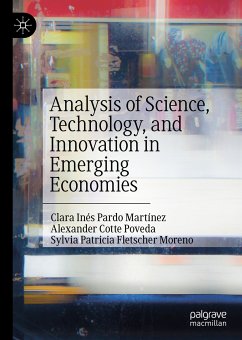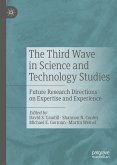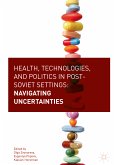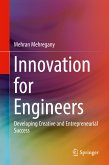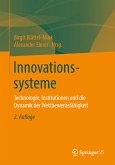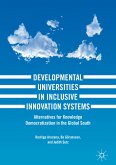Analysis of Science, Technology, and Innovation in Emerging Economies (eBook, PDF)
Redaktion: Pardo Martínez, Clara Inés; Fletscher Moreno, Sylvia Patricia; Cotte Poveda, Alexander


Alle Infos zum eBook verschenken

Analysis of Science, Technology, and Innovation in Emerging Economies (eBook, PDF)
Redaktion: Pardo Martínez, Clara Inés; Fletscher Moreno, Sylvia Patricia; Cotte Poveda, Alexander
- Format: PDF
- Merkliste
- Auf die Merkliste
- Bewerten Bewerten
- Teilen
- Produkt teilen
- Produkterinnerung
- Produkterinnerung

Hier können Sie sich einloggen

Bitte loggen Sie sich zunächst in Ihr Kundenkonto ein oder registrieren Sie sich bei bücher.de, um das eBook-Abo tolino select nutzen zu können.
This book outlines a number of different perspectives on the relationship between science, technology, and innovation in emerging economies. In it, the authors explore the aforementioned relationship as a pillar of economic development, driving growth in emerging economies. Employing a collaborative and interdisciplinary approach, the authors work to determine the main related factors and outcomes of the relationship between science, technology, and innovation, ultimately seeking to guide public policies to enhance the welfare of the population of an emerging economy.
- Geräte: PC
- ohne Kopierschutz
- eBook Hilfe
- Größe: 5.22MB
![The Third Wave in Science and Technology Studies (eBook, PDF) The Third Wave in Science and Technology Studies (eBook, PDF)]() The Third Wave in Science and Technology Studies (eBook, PDF)69,95 €
The Third Wave in Science and Technology Studies (eBook, PDF)69,95 €![Health, Technologies, and Politics in Post-Soviet Settings (eBook, PDF) Health, Technologies, and Politics in Post-Soviet Settings (eBook, PDF)]() Health, Technologies, and Politics in Post-Soviet Settings (eBook, PDF)40,95 €
Health, Technologies, and Politics in Post-Soviet Settings (eBook, PDF)40,95 €![Innovation for Engineers (eBook, PDF) Innovation for Engineers (eBook, PDF)]() Mehran MehreganyInnovation for Engineers (eBook, PDF)113,95 €
Mehran MehreganyInnovation for Engineers (eBook, PDF)113,95 €![Rethinking the Clinical Gaze (eBook, PDF) Rethinking the Clinical Gaze (eBook, PDF)]() John GardnerRethinking the Clinical Gaze (eBook, PDF)40,95 €
John GardnerRethinking the Clinical Gaze (eBook, PDF)40,95 €- -22%11
![Innovationssysteme (eBook, PDF) Innovationssysteme (eBook, PDF)]() Innovationssysteme (eBook, PDF)34,99 €
Innovationssysteme (eBook, PDF)34,99 € ![Developmental Universities in Inclusive Innovation Systems (eBook, PDF) Developmental Universities in Inclusive Innovation Systems (eBook, PDF)]() Rodrigo ArocenaDevelopmental Universities in Inclusive Innovation Systems (eBook, PDF)73,95 €
Rodrigo ArocenaDevelopmental Universities in Inclusive Innovation Systems (eBook, PDF)73,95 €![From Bench to Boardroom (eBook, PDF) From Bench to Boardroom (eBook, PDF)]() Clifford L. SpiroFrom Bench to Boardroom (eBook, PDF)24,95 €
Clifford L. SpiroFrom Bench to Boardroom (eBook, PDF)24,95 €-
-
-
Dieser Download kann aus rechtlichen Gründen nur mit Rechnungsadresse in A, B, BG, CY, CZ, D, DK, EW, E, FIN, F, GR, HR, H, IRL, I, LT, L, LR, M, NL, PL, P, R, S, SLO, SK ausgeliefert werden.
- Produktdetails
- Verlag: Springer International Publishing
- Seitenzahl: 321
- Erscheinungstermin: 16. Mai 2019
- Englisch
- ISBN-13: 9783030135782
- Artikelnr.: 56833663
- Verlag: Springer International Publishing
- Seitenzahl: 321
- Erscheinungstermin: 16. Mai 2019
- Englisch
- ISBN-13: 9783030135782
- Artikelnr.: 56833663
- Herstellerkennzeichnung Die Herstellerinformationen sind derzeit nicht verfügbar.
